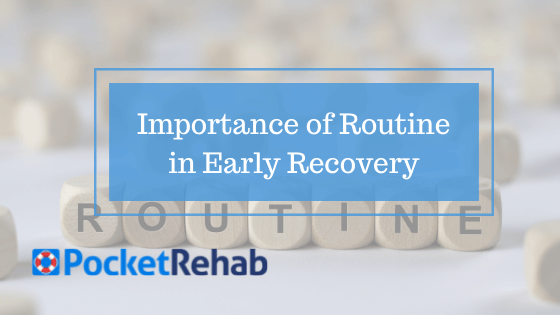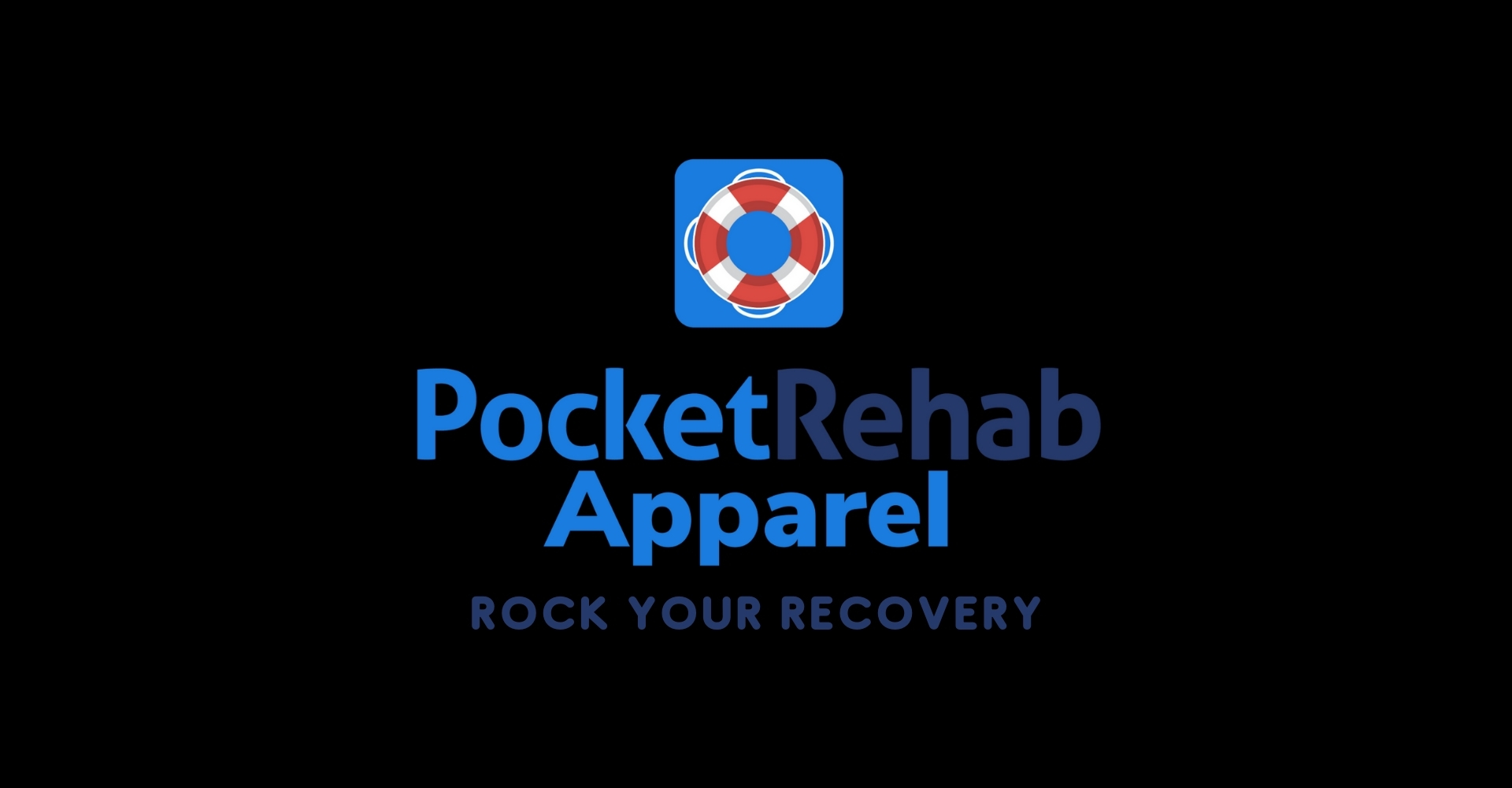Importance of Routine in Early Recovery

Establishing a daily routine can be incredibly beneficial for long-term success in your attempt towards drug and alcohol addiction recovery, particularly in early recovery. Daily check-ins, in addiction recovery apps and through your own consistency in early recovery routines that you set, help you to establish the structure that many sober individuals already have and which helps them to maintain comfort and balance in their lives. The importance of routine in early recovery is certainly something that bares review and understanding, particularly among the subgroups of those who are most impacted – those in recovery!
So what does this all mean? How can I establish routines in early recovery to ensure my own success? More so, why is routine so important in early recovery and does maintaining a consistent routine have significant importance past the first 90-days of recovery?
The importance of routine in early recovery is certainly something to be reviewed and understood, but everyone’s situation is different. Among those who are in early recovery, those who develop some kind of routine early on are most likely to recognize signs that they are drifting towards relapse or that they are at risk.
What Defines a Routine?
Routine, particularly as it applies to establishing consistency in early recovery, can be defined as a detailed set of actions or repeat activities that take place on a regularly scheduled time period. For those in early recovery, routine can be as simple as waking up at the same time each day and going to bed at the same time each day. It can also be complex, representing a series of plans that take place, consecutively and in succession or sequentially, one after another each day. it may also include accountability for your actions.
Deviating from routine is bound to happen, just like LIFE happens. However, for those in early recovery, where any deviation from the routines that we’re accustomed to can result in stress, anxiety, and increased risk of relapse monitoring daily routines and the deviations which occur are more important than others.
Establishing Daily Routines in Early Recovery
If you’re new to recovery, you might not realize the importance of routine in recovery. However, you’ll soon grow accustomed to establishing daily routines in recovery and you will realize how much these routines help you to remain focused on your goals and on being successful in recovery. Your daily routine might include any of the following:
- Setting a specific time to rise in the morning.
- Specifying a time that you will go to bed each night.
- Incorporating daily exercise into your routine, at a particular time and generally for a set period of time such as 30 minutes or more.
- Setting time for meditation and journaling.
- Establishing time out for devotion, whether it is for religious and spiritual purposes or something else.
- Devoting time to hobbies or personal growth.
- Establishing specific work times or working hours.
- Establishing times for recovery group engagement or specific involvement with your therapist.
- Engaging in a personal hygiene routine.
- Setting cleaning schedules for your home, office, or other areas.
- Establishing set times for meals, including breakfast, lunch and dinner.
- Devoting specific time to self-enrichment, education, or other needs.
Essentially, any kind of task that you will regularly perform can become routine, especially if you perform the task on a consistent basis. Unfortunately, not all routines are ideal or beneficial to your recovery! Some routines, including any routine that takes you away from your daily self-care, such as routinely using drugs or alcohol or routinely avoiding a scheduled task that is otherwise considered healthy could place you at significant risk either of addiction or of relapse.
This is one of the reasons there is so much importance of routine in early recovery, but routine is also important prior to becoming addicted. In fact, there are a lot of potential benefits to routine in recovery.
Benefits of Routine in Early Recovery
Establishing routine, early in the recovery process, can help you to recognize signs of imminent relapse, especially if the changes occurring are negative. This is one of the benefits of establishing a routine and recognizing the advantages of routine in early recovery. Those who have committed to a routine experience significant advantages including:
- Routines provide structure that can be comforting, even when life itself is seemingly difficult or otherwise hard to feel good about.
- Familiarity and comfort come from routine, which is great when the importance of routine in early recovery is established.
- Routines can instill sleep schedules, limiting the need for medication to fall asleep.
- Routines can improve water intake or establish health eating schedules for weight loss, weight gain, or other health concerns.
- Routines can improve productivity at work, at home, at school, and anywhere the individual is focused on being productive on a routine basis.
- Regular fitness routines help to instill healthy eating habits, healthy workout habits, and overall healthy activities.
- Routines are important to mental health, establishing connections and other important needs that can prevent significant struggles internally.
As with anything, routines are only valuable if they are not overdone! Becoming obsessed with a routine can result in significant danger including further addiction to exercise, food, or another area and it might cause other serious problems. So while there’s the significant importance of routine in early recover, there is also significant risk should someone obsess over routine or otherwise become addicted to a routine in an unhealthy manner.
Quick Tips for Establishing Routine in Early Recovery
Apps like Pocket Rehab can help you to establish routine in early recovery. Calendars are also important to establishing recovery routines. Additionally, getting involved in recovery groups, religious groups, and daily involvement at work, home and school can limit your risk of relapse. To establish routines, consider the following:
- Be open and willing to create routines and set goals for daily involvement.
- Repeat your involvement in typical routines to grow your chance of long-term sobriety.
- Keep yourself involved in routines that are important to recovery but make sure that you do not go overboard or risk becoming addicted to routine.
- If you find yourself missing routine events, carefully analyze the reasons why you’re falling out of routine. Falling consistently out of a routine is a potential sign of relapse.
- Routine will take some time to establish. Stay consistent and motivated. Try not to give up.
- Don’t try to fit too many routines into your schedule. Too many activities can result in your feeling anxiety or in being overwhelmed.
- Be prepared to adjust your routines as your interests adjust.
- Use apps, like Pocket Rehab, to set your routines and to establish your day-to-day interactions on a consistent schedule.
- Schedule activities that will strengthen your recovery and try to avoid those that do not make your recovery a priority.
The importance of routine in early recovery is something that many will struggle to understand, especially at first, but the support of technology, as well as educational understanding and research, shows that sobriety and long-term recovery can be achieved with consistency and ongoing focus on routine.
How can we help you establish and maintain routine with Pocket Rehab? What would you like to see?
Tags: routine, routines in early recovery, routine in early recovery, routines, recovery, recovery app, recovery routine, addiction recovery





